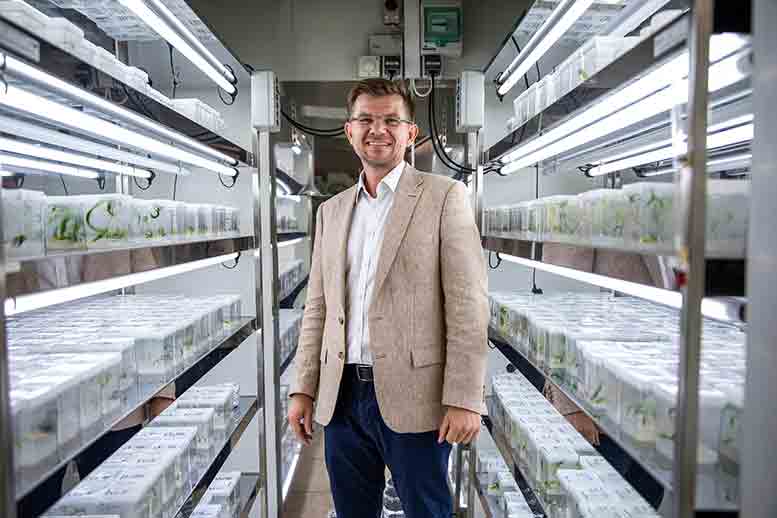Poland’s Institute of Natural Fibers & Medicinal Plants (IWNiRZ) has launched a program aimed at lifting the fortunes of the agrarian nation’s hemp farmers while expanding the country’s international footprint through a wide range of research, development and new business activities.
“The dynamic annual increase in the scale of hemp farming in Poland is an opportunity to improve the financial situation of Polish farmers, especially small landholders,” said Witold Czeszak, who heads the Institute’s Technology Transfer Department, and is co-founder and manager of the new initiative, the Polish Hemp Program.
At the same time, Czeszak said IWNiRZ is responding to the needs of the global industrial hemp market, setting an example for effective commercialization of intellectual property rights developed at the Institute, which marks its 90th anniversary this year.
Working globally, locally
Supervised by Poland’s Ministry of Agriculture and Rural Development, IWNiRZ participates in a wide range of national and international projects, cooperates with numerous scientific organizations around the world, and carries out comprehensive research on the harvesting and processing of natural fibrous and herbal materials. That includes extensive R&D into machines for harvesting, and processing technology for a variety of whole-plant applications. The Institute is currently working with Polish farmers and innovators in developing threshing machines and a hemp harvester for seed material, and provides harvesting services.
Supporting Polish farmers
By offering farmers the chance to earn as much as 15,000 Polish zlotys ($3,800/€3,352) per hectare, the Institute’s outreach in the Polish farming community is creating interest among a young generation of farmers and entrepreneurs who clearly see the potential in industrial hemp. “It’s an opportunity for them to develop processing solutions aimed at producing all kinds of finished products,” Czeszak said.
With a goal to increase the popularity of the hemp business in Poland, IWNiRZ is working to transfer knowledge in farm technology and processing to Polish agri-businesses, and supporting local initiatives that are developing value-chain infrastructure – all aiming to push the country into the top ranks of hemp growing and processing in Europe.
International positioning
More specifically, The Polish Hemp Program aims to position Poland as a leader in seed crops by increasing hemp fields by 100% per year, Czeszak said. He envisions most of that increased seed production being exported to the USA.
Such seed development and sales activity is promising for the Institute internationally as it advances large-scale production of certified and elite industrial hemp seed varieties in the IWNiRZ portfolio (Białobrzeskie, Tygra, Henola and Rajan strains), which are sold in Poland and Europe as well as on other continents.
Henola, the newest breed from IWNiRZ which was developed through seven years of R&D, has gotten positive reviews from growers around the world, with initiatives in North and South America, Australia, Japan, Uruguay and Colombia, according to Czeszak, who notes that IWNiRZ varieties are grown in 41 U.S. states. Having recently concluded one of the largest export contracts in the history of Poland for the sale of Polish hemp seed varieties, Czeszak said international licensing agreements under the Institute’s seed sales bring in millions of dollars.
CBD & textile labs
But the Polish Hemp Program is not only about sowing seed production. The Institute also has high quality cannabinoid and textile laboratories offering a wide scope of services and tests. IWNiRZ also is launching a high-capacity de-hulling line with substantial capacity, and the institute sells grain, fiber and hurd.
The Institute is also in the process of preparing another new strain, Rajan, for commercialization in Europe and internationally. That breed is distinguished by its large amount of biomass and longer vegetation period, and may be interesting for latitudes outside those that bracket Central European countries, Czeszak said.
Along with the international seed business, IWNiRZ also works as a consultant to other countries, to which is it also offering a wide range of technologies it has developed.
“Our long term strategic goal is to develop the Polish Hemp Program by being present with our seeds and technologies in many new countries. We are looking for new partners worldwide,” Czeszak said.
Global reach of IWNiRZ
+ Research Partners
* Polish Hemp Program
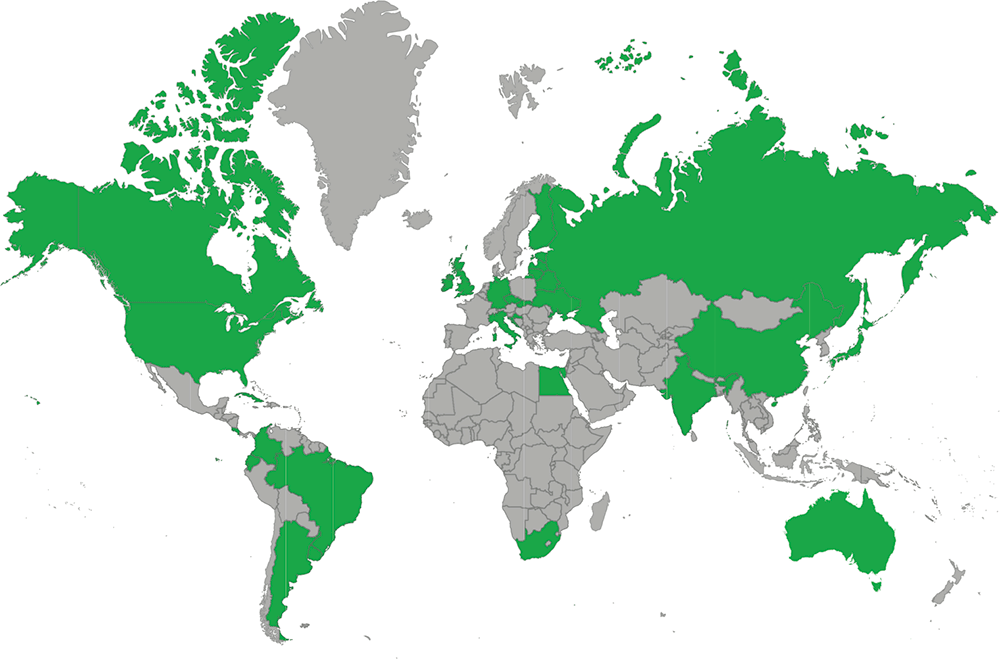
- Argentina +
- Australia +*
- Belarus +
- Brazil +
- Canada +*
- China +
- Colombia +
- Costa Rica *
- Croatia *
- Cuba +
- Czech Republic +*
- Ecuador +
- Egypt +
- Estonia *
- Finland +*
- Germany +*
- India +
- Ireland *
- Italy +
- Japan +*
- Lithuania *
- Latvia *
- Russia +
- Slovakia +
- South Africa +
- Ukraine +
- Uruguay +*
- UK +*
- USA +*
Strong presence in USA
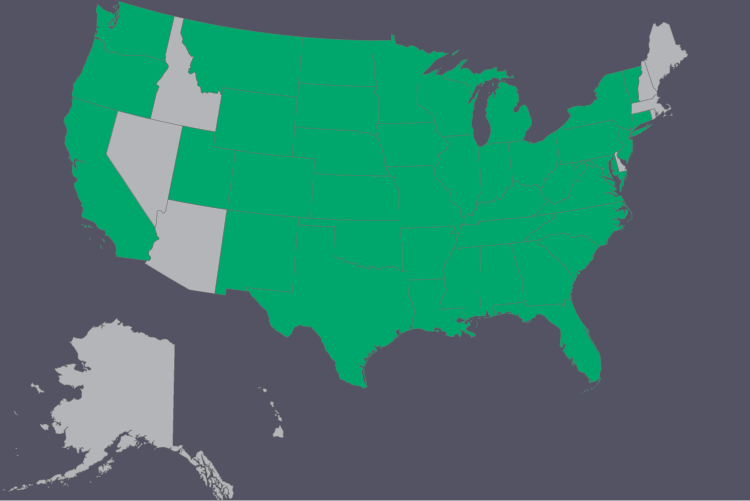
IWNiRZ seeds in 41 U.S. states: Alabama, Arizona, California, Colorado, Connecticut, Florida, Georgia, Iowa, Indiana, Kansas, Kentucky, Louisiana, Maryland, Michigan, Minnesota, Missouri, Montana, Mississippi, Montana, Nebraska, NewJersey, New Mexico,New York, North Carolina, North Dakota, Ohio, Oklahoma, Oregon, Pennsylvania, South Carolina, South Dakota, Tennessee, Texas, Utah, Virginia, Vermont, Washington, Wisconsin, West Virginia, Wyoming
Superior hemp cultivars for the global market
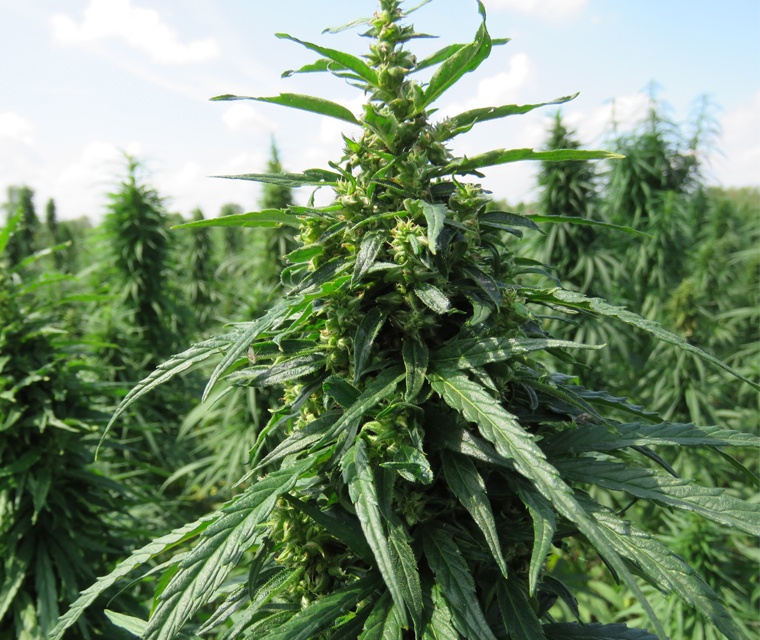
HENOLA – High seed yield, low in THC: The ground-breaking Henola hemp cultivar is the newest variety developed by IWNiRZ. Almost nine decades of experience was brought to bear on this oily strain, gives up twice the seed yield of other varieties available on the market (2-3 tons per hectare for industrial plantations). Henola grows low, to only to about 2 meters in height, has a vegetation time shorter by 3 weeks than other Polish hemp varieties, and has a very favorable fatty acid ratio. The breed was registered with Poland’s Central Research Center for Cultivated Plant Varieties in 2018 under number R2908, and has been approved by the Colorado Department of Agriculture in the USA. Certification followed seven years of research and development of the new cultivar under the direction of Assoc. Prof. Henryk Burczyk, assisted by Jakub Frankowski, M.Sc. Eng., Bożena Michalak, and Grzegorz Oleszak of the Institute’s experimental station in Pętkowo, Poland.
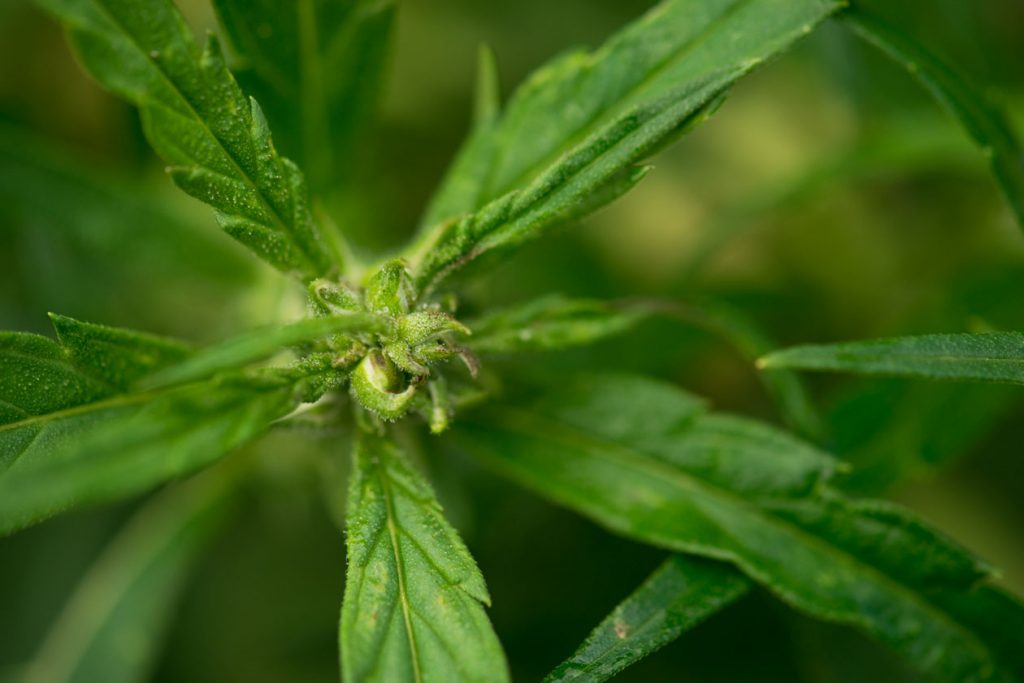
BIALOBRZESKIE – Quality fiber and seed: The first Polish variety of fibrous monoecious hemp, grown in the Institute of Natural Fibres and Herbal Plants. It is characterized by a high yield of straw with high quality fibers and a large amount of seeds. A stabilized variety, grown for textile purposes since the 1960s. Appreciated by producers of CBD extracts due to its interesting cannabinoid profile, this strain is stable at less than 0.2% THC.
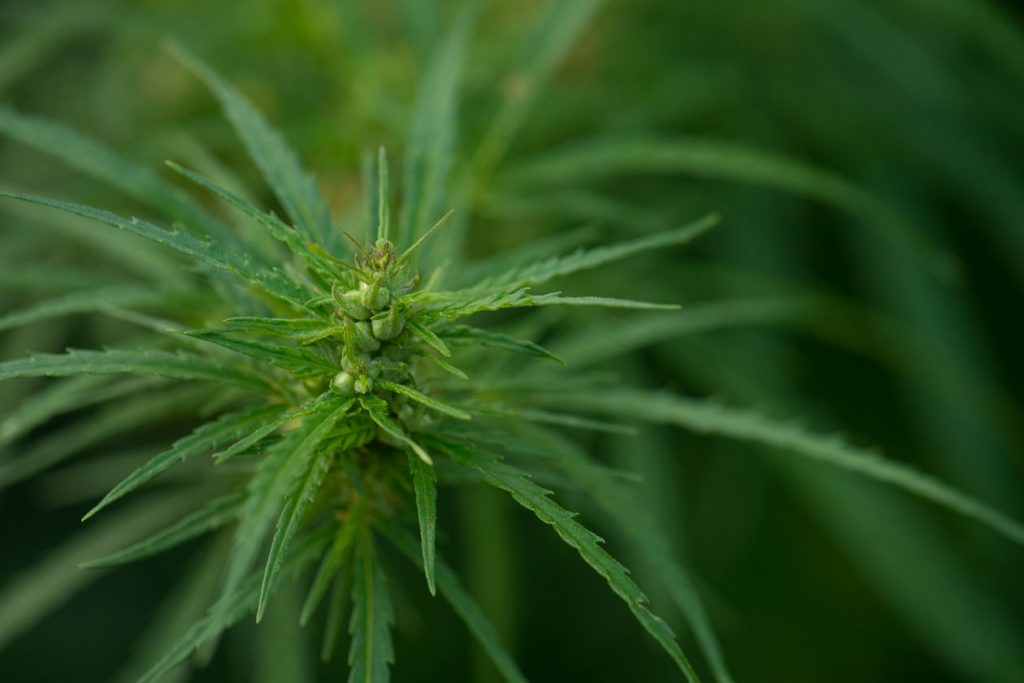
TYGRA – High yield for technical purposes: Polish variety of fibrous monoecious hemp, grown in the Institute of Natural Fibres and Herbal Plants. It is characterized by a high yield of good quality fibre, used especially for technical purposes. It allows to obtain a seed yield over 1 tonne per hectare. Stabilized at less than 0.2% THC, this variety has a relatively short vegetation period.
RAJAN – Large amounts of biomass: The IWNIRZ variety, which is distinguished by its large amount of biomass and longer vegetation period, may be interesting for other latitudes than Central European countries. Rajan is currently being prepared for commercialization, both in Europe and other continents.
90 years of experience in natural fibers
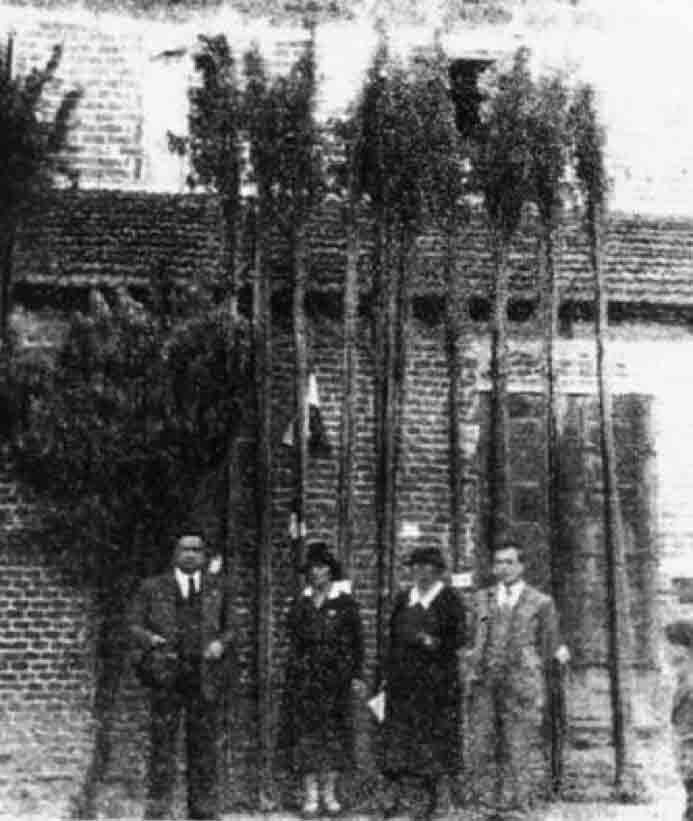
Poland’s modern-day hemp story begins in Vilnius, on March 14, 1930. That’s where, at an experimental agriculture station set up in cooperation with the Stefan Batory University, in lands then under Polish reign, that General Łucjan Żeligowski began experiments to develop hemp and flax strains that eventually would be widely used across Europe.
Żeligowski, a contemporary and close friend of renowned Polish military hero and political leader Marshal Józef Pilsudski, gathered experts who began to study bast fiber plant varieties from Vilnius east into former German lands ceded to Poland after World War II.
It was on the heels of the war, in 1945, that Żeligowski’s initiative and many of its bast fiber experts relocated to the central western Polish city of Poznań to join with an institute under the direction of Dr. Janusz Jagmin, a professor in the university there. With a post-war mission to rebuild now Communist Poland’s bast fiber and wool industries, Jagmin oversaw the construction of 25 factories for retting, spinning and weaving, and set up research facilities to advance those processes with a new generation of machines while also establishing field laboratories for agronomic experimentation.

